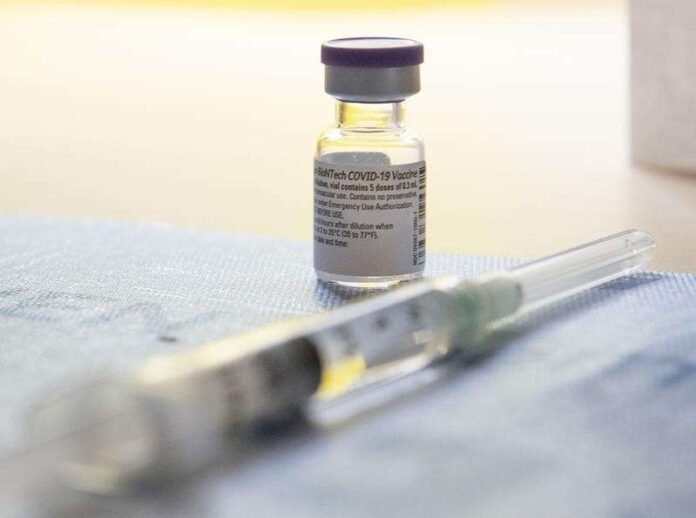HALIFAX — The first doses of the Pfizer-BioNtech COVID-19 vaccine arrived in Atlantic Canada Tuesday and Nova Scotia, Prince Edward Island and Newfoundland and Labrador said they would begin inoculating their citizens as early as Wednesday.
New Brunswick, meanwhile, said its first vaccine clinic will open over the weekend. All four Atlantic provinces received a first shipment of 1,950 doses.
In Nova Scotia, about 350 front-line health workers in Halifax will be the first to be inoculated in the province against COVID-19. They will receive their shot at a clinic close to the Dalhousie University campus, where the vaccines are being stored.
“This, in fact, will be a program in constant evolution,” Dr. Gaynor Watson-Creed, the province’s deputy chief medical officer of health, told reporters Tuesday. “We don’t anticipate any hard-and-fast stops and starts as we move from one category of people to another.”
Among the first to receive the vaccine this month will be workers at COVID-19 hospital units, emergency departments, critical care units as well as birth and early labour units at the IWK Health Centre. Long-term care staff who are directly involved in patient care in the Halifax area will also receive the vaccine this month.
All other long-term care staff across the province will receive the vaccine between January and March. Watson-Creed said half the initial shipment of vaccines will be used as second doses for each of the first patients who receive a shot. The Pfizer-BioNtech vaccine requires two doses to be fully effective.
“I think our approach here is quite frankly a conservative one,” she said. “We want to make sure that people are immunized fully and it is in keeping with the direction that the manufacturer has suggested.”
Dr. Shelly McNeil, chief of the division of infectious diseases at the Nova Scotia health authority, said although immunization is not mandatory for health-care staff, they will be required to adhere to safety measures already in place whether they are vaccinated or not.
McNeil said the province expects to receive about 5,800 doses of vaccine by the end of December. “That’s as much as we know right now,” she said. The province expects to receive small, weekly shipments of vaccine until the end of March, after which the supply is expected to increase, she added.
Last week, the province’s chief medical officer of health said the goal was to have the general population vaccinated by next fall. “It is the target … but certainly a big part of what will have to be in place is more vaccine,” Watson-Creed said.
In Prince Edward Island, health officials said a front-line health-care worker from the long-term care sector will be the first person to receive a vaccine on Wednesday, at the Queen Elizabeth Hospital in Charlottetown.
Premier Dennis King told reporters that with the arrival of the vaccine, the province is turning an important corner with the pandemic. “As our front-line health-care workers and long-term care workers roll up their sleeves to get their vaccine, that is a very important sign and a sign we are on the road to a better place,” he said.
King said if all goes as planned, by the end of the day Wednesday, more Islanders will have been immunized than have tested positive for the virus. The province has reported a total of 89 infections.
Newfoundland and Labrador Premier Andrew Furey posted a video to Twitter Tuesday in which he is seen standing alongside Health Minister John Haggie on an airport apron, watching the arrival of the vaccine shipment.
In the video, Furey and Haggie embraced each other as they walked through wind and rain toward the plane while its cargo was unloaded. Furey said his plan is to begin administering the vaccines Wednesday.
Meanwhile, New Brunswick confirmed the arrival of the first batch of vaccine at the Miramichi Regional Hospital, where an immunization clinic is scheduled to be held for priority groups over the weekend.
Health officials in the province reported one new case of COVID-19 Tuesday, involving a person in their 40s in the Edmundston region who was self-isolating. The province has reported a total of eight deaths linked to the virus and says it has 47 active cases.
On Tuesday, Nova Scotia reported six new COVID-19 cases and said it had 57 active cases, while Newfoundland and Labrador identified one new case related to travel and had 20 active cases. P.E.I. reported no new cases and said it had 16 active cases of COVID-19.
— With files by Kevin Bissett in Fredericton and Sarah Smellie in St. John’s.
Keith Doucette, The Canadian Press

